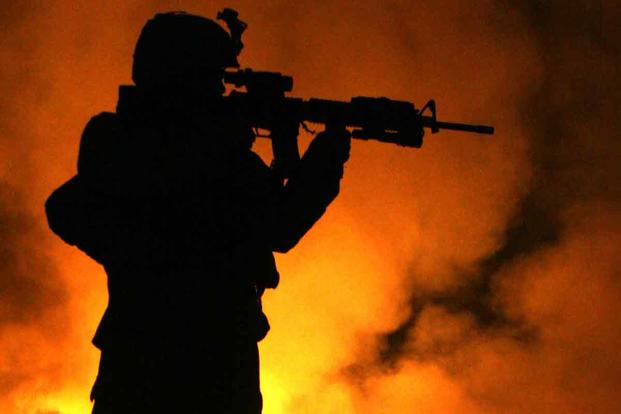The Department of Veterans Affairs recently began processing disability claims for veterans suffering from respiratory conditions related to their military service from 1990 to now.
Who Is Eligible for the New Expanded Benefit?
The new expansion of eligibility to health-care and compensation benefits applies to veterans of the Persian Gulf War (Desert Shield and Desert Storm), as well as those who served during Operation Enduring Freedom (OEF) in the Southwest Asia Theater of Operations.
Specifically, Gulf War and Enduring Freedom veterans who served in the following areas are eligible for the expanded benefit:
- Bahrain
- Iraq
- Kuwait
- Oman
- Qatar
- Saudi Arabia
- United Arab Emirates
- Gulf of Aden
- Gulf of Oman
- Persian Gulf
- Arabian Sea
- Red Sea
- The airspace above these locations.
Additionally, veterans who served in the following areas after Sept. 19, 2001, are eligible for the expanded benefit:
- Afghanistan
- Djibouti
- Syria
- Uzbekistan, including Karshi-Khanabad (K-2) Air Base.
What Does The New Expanded Benefit Cover?
The new expanded benefit applies to any veteran who served in the above-mentioned areas during the qualifying time frame and is also suffering from certain rare respiratory cancers, chronic asthma, rhinitis or sinusitis. The new VA regulation makes it easier for these veterans to receive the care and treatment needed to treat illnesses caused by their military service.
VA conducted a review of scientific and medical evidence and determined there is possible connection between airborne hazards and certain rare cancers of the respiratory tract.
See: Disability Compensation for Presumptive Conditions
Rhinitis is characterized by nasal congestion, cough and trouble breathing. Rhinitis can often worsen and affect a person’s sinuses, this is known as sinusitis. Sinusitis is more serious and can result in additional symptoms including headache, fever, pain, or loss of sense of smell and taste. It can also develop into more severe and chronic respiratory problems such as asthma.
Affected veterans also may be eligible for disability compensation related to their illnesses.
The veteran must have been diagnosed or treated for one of the qualifying conditions either during their service or within 10 years after discharge from the military to be eligible for benefits under the new regulation.
Due to the pervasiveness of pollutants in-theater, the sheer number of military members involved in both campaigns and difficulty in determining exactly who was exposed to specific pollutants, the VA has issued a blanket regulation that makes any veteran who meets the qualifications eligible for benefits and treatment. The VA estimates more than 3.2 million military members served in the possible exposure areas and says the new expanded regulation will cost taxpayers more than $100 million annually.
No proof of exposure is necessary on the veteran's part. Veterans need not have physically been present at a burn pit or spent prolonged service amid the smoke from burning oil wells to qualify.
Veterans who think they may be eligible for this new expanded benefit are urged to visit the VA's website to apply for health care or file a claim for compensation benefits. Those who previously applied for either health care or compensation and were denied should apply again if they feel they may be eligible under the new regulation.
The VA also maintains a registry of veterans exposed to pollutants from burn pits as well as one for veterans suffering from Gulf War Syndrome. Signing up for these registries will keep interested parties up to date on breaking news related to their specific situation and also may help the VA diagnose and cure more military-related illnesses.
Veterans can also visit the VA's Airborne Hazards and Burn Pit Exposures website for more details.
Stay on Top of Your Military Benefits
Not sure what your veteran health care benefits are? Keep up with all the changes and details. Subscribe to Military.com. and get all the latest updates straight to your inbox.
















